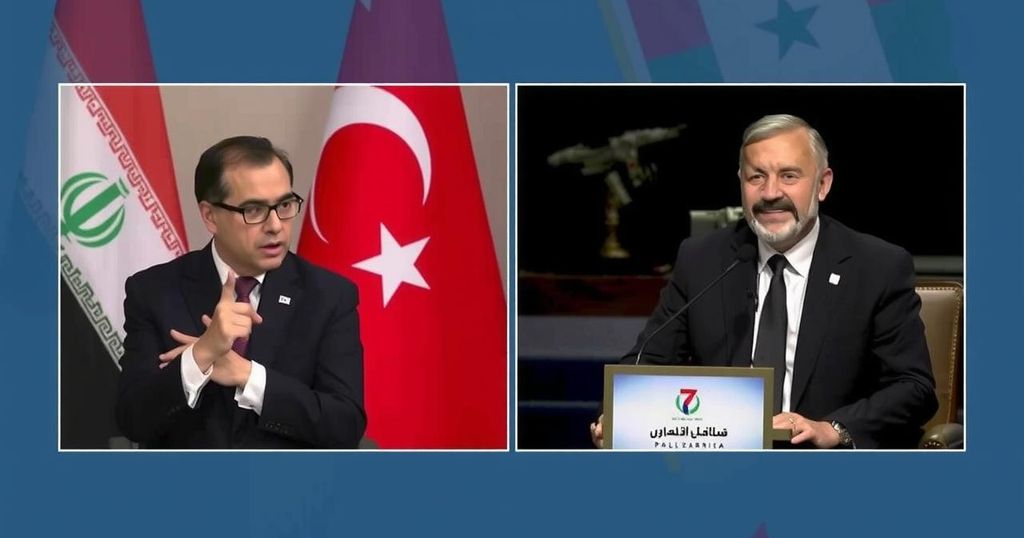Syria’s President Bashar al-Assad, before his ouster, raised alarms with Iran about Turkey’s backing of Sunni rebels, particularly HTS. Meeting with Iranian Foreign Minister Abbas Araghchi, Assad expressed anger and concern over Turkey’s involvement, prompting Iranian leaders to confront Turkish officials. As Assad’s regime crumbles, Iran faces significant challenges in maintaining its influence, further complicated by Turkey’s historical opposition to Assad’s government.
In the waning days of his presidency, Syrian President Bashar al-Assad expressed serious concerns to Iran’s Foreign Minister, Abbas Araghchi, regarding Turkey’s alleged support for Sunni rebel factions, specifically Hayat Tahrir al-Sham (HTS), which was once affiliated with al-Qaida. Reports indicate that, during a December 2 meeting in Damascus, Assad articulated his frustrations about Turkey’s escalating role in attempts to oust him. Iran, which had strongly backed Assad throughout Syria’s prolonged civil conflict, sought to address these concerns diplomatically with Turkey.
Subsequently, Araghchi addressed these issues directly with Turkish officials, emphasizing Iran’s discontent with Turkey’s alignment with Western and Israeli military strategies. Tensions surfaced in the dialogue, with Turkish Foreign Minister Hakan Fidan redirecting the blame toward Assad for the ongoing crisis, suggesting that his failure to engage in meaningful peace negotiations underscored the unrest in Syria. This divergence in perspectives highlights the complexities of Turkey’s involvement in Syria, especially given its historical support for opposition forces aiming to remove Assad since the civil war’s inception in 2011.
The geopolitical implications of Assad’s departure from power are manifold. Iranian influences have historically utilized Syria as a strategic corridor for military logistics extending to Lebanon, thus supporting groups such as Hezbollah. With the Assad regime now endangered, Iran’s comprehensive investment in Syrian stability faces significant challenges, including the redeployment of Hezbollah fighters, who have returned to Lebanon in response to escalating conflicts with Israel. These developments mark a pivotal moment in the broader context of Middle Eastern geopolitics, particularly regarding the roles of Iran, Turkey, and the Assad regime.
The article discusses the recent political upheaval in Syria, focusing on the conversations between Bashar al-Assad and Iranian officials regarding Turkey’s involvement in aiding Sunni rebel groups against Assad’s regime. This context follows a long-standing civil war that has drawn in various international actors and redrawn alliances in the region. Iran has historically supported Assad as a crucial ally, using Syria to extend its influence across the region. The collapse of Assad’s administration is viewed as a significant setback for Tehran and may alter the alliances and dynamics of power within the Middle East.
In conclusion, the interactions between Assad and Iranian leadership reflect growing concerns over Turkey’s support for rebel forces in Syria. With Assad’s regime facing imminent threats, the geopolitical landscape of the region is shifting significantly. Iran’s investment in Assad’s survival is now jeopardized, while Turkey’s role in the conflict continues to evolve, highlighting the intricate entanglements among regional and global powers in this ongoing crisis.
Original Source: www.voanews.com







